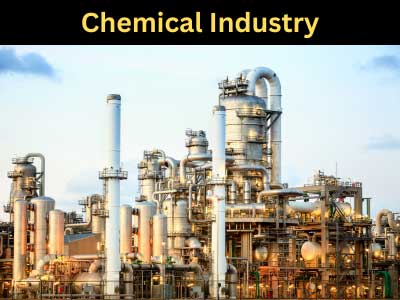What Are The Applications Of MES In The Chemical Industry?
Key Takeaway
Manufacturing Execution Systems (MES) are essential in the chemical industry for various applications. They ensure process safety and compliance by monitoring production parameters in real-time, alerting operators to deviations and enabling quick corrective actions. This enhances safety and meets regulatory standards.
MES also optimizes batch production by managing recipes and schedules, improving efficiency. It enhances quality control by tracking and tracing raw materials and finished products, ensuring traceability. MES supports managing raw materials and inventory, reducing waste, and improving resource utilization. Additionally, it aids in research and development by providing data for analysis and process improvements.
Ensuring Process Safety and Compliance
In the chemical industry, process safety and regulatory compliance are crucial. MES systems help ensure all manufacturing processes meet strict safety standards and regulatory requirements. They provide real-time monitoring and control, maintaining safe operating conditions and preventing incidents.
For example, MES monitors temperature, pressure, and chemical concentrations in real-time, alerting operators to deviations from safe limits. This immediate feedback allows for prompt corrective actions, reducing accident risks. MES also generates detailed reports and logs essential for compliance with regulations like OSHA and EPA, providing a transparent audit trail for inspections.
Additionally, MES automates safety checks and enforces compliance with standard operating procedures (SOPs), reducing human error and enhancing overall safety in chemical manufacturing operations.

Optimizing Batch Production
Batch production is a common practice in the chemical industry, and MES systems play a crucial role in optimizing these processes. MES provides detailed scheduling and tracking of batch operations, ensuring that each batch is produced efficiently and consistently. This level of control is vital for maintaining product quality and meeting production targets.
For instance, MES can manage the sequencing of batch production steps, ensuring that each step is performed at the right time and under the right conditions. This helps to minimize delays and maximize the utilization of equipment and resources. MES also enables the real-time tracking of batch progress, providing visibility into each stage of the production process. This visibility allows operators to quickly identify and address any issues that may arise, ensuring that production stays on track.
Additionally, MES systems can optimize the use of raw materials and reduce waste. By precisely controlling the quantities of materials used in each batch, MES helps to ensure that no excess materials are wasted. This optimization not only reduces costs but also minimizes the environmental impact of chemical manufacturing.
Enhancing Quality Control and Traceability
Quality control is critical in the chemical industry, where product consistency and purity are essential. MES systems enhance quality control by providing real-time monitoring and analysis of production processes. This continuous oversight helps to ensure that all products meet the required quality standards.
For example, MES can monitor key quality parameters such as temperature, pH levels, and concentration of ingredients. Any deviations from the specified ranges can trigger immediate alerts, allowing operators to take corrective actions before the quality of the batch is compromised. This proactive approach to quality control helps to prevent defects and ensure that all products meet the required specifications.
Traceability is another important aspect of quality control in the chemical industry. MES systems provide comprehensive traceability by recording detailed information about each batch, including the source of raw materials, production conditions, and processing steps. This information is crucial for tracking the origin and history of each product, enabling quick and effective responses to quality issues or recalls. With MES, manufacturers can ensure that every product is fully traceable from raw materials to finished goods.
Managing Raw Materials and Inventory
Effective management of raw materials and inventory is essential for efficient chemical manufacturing. MES systems provide real-time visibility into inventory levels, helping manufacturers to optimize the use of raw materials and reduce waste. By tracking the consumption of materials and monitoring inventory levels, MES ensures that production processes are not interrupted due to shortages or delays.
For instance, MES can automate the reordering of raw materials when inventory levels fall below a certain threshold. This automation helps to ensure that materials are always available when needed, preventing production delays and reducing the need for excess inventory. MES also provides detailed records of material usage, enabling manufacturers to analyze consumption patterns and identify opportunities for cost savings.
Furthermore, MES systems can improve the accuracy of inventory management by integrating with other enterprise systems such as ERP and SCM. This integration ensures that inventory data is always up-to-date and accurate, facilitating better decision-making and planning. By optimizing inventory management, MES helps to reduce costs and improve the overall efficiency of chemical manufacturing operations.
Supporting Research and Development
Research and development (R&D) are crucial for innovation and growth in the chemical industry. MES systems support R&D activities by providing detailed data and insights into production processes. This information is essential for developing new products and improving existing ones.
For example, MES can capture and analyze data from experimental runs, providing valuable insights into process performance and product quality. This data can be used to identify the optimal conditions for producing new chemical compounds or improving existing formulations. MES also enables the tracking of experimental variables, helping researchers to understand the impact of different factors on the final product.
Additionally, MES systems facilitate collaboration between R&D and production teams. By providing a common platform for sharing data and insights, MES helps to ensure that new products are developed with a clear understanding of production capabilities and constraints. This collaboration is essential for successful product development and commercialization.
Conclusion
In conclusion, MES systems are essential tools for the chemical industry, providing real-time visibility and control over production processes. They ensure process safety and compliance, optimize batch production, enhance quality control and traceability, manage raw materials and inventory, and support research and development. By leveraging the capabilities of MES, chemical manufacturers can improve efficiency, reduce costs, and ensure the production of high-quality products.
